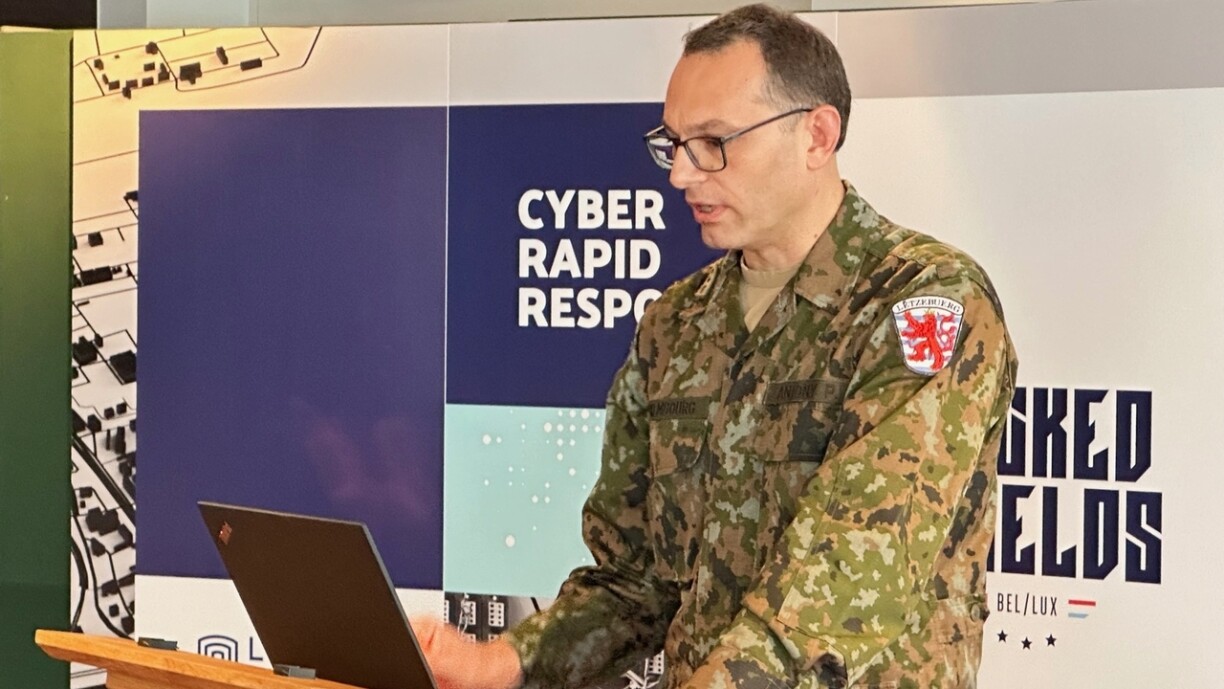
About a month ago, the Luxembourg government faced a series of cyber attacks on its systems which were mostly fended off with success. Regular training of such emergency situations is thus considered indispensable which is why national defence authorities last week participated in a NATO exercise called ‘Locked Shields’, held at the Cooperative Cyber Defence Center of Excellence.
While RTL was granted a rare glimpse behind the scenes of this training exercise, it has to be said that it is difficult to actually see how cyber defence unfolds. For the most part, the 130 people from the Luxembourg-Belgium defence team sat behind their screens to focus their efforts on fighting off a fictional attack.
In conversation with RTL, Lieutenant Colonel Patrick Antony of the Luxembourg Army shed light on the mission: “The scenario involved a conflict between two island states, including an invasion fuelled by cyber attacks and information campaigns that were prepared ahead of time.” Though fictional, the scenario in question drew inspiration in part from the Russian invasion of Ukraine, which is known to have started informally with a number of cyber attacks.
The exercise saw 5,500 virtual systems being targeted by 8,000 attacks. Antony elaborated that teams were pitted against one another, with a final ranking showing which ones performed the best. Last year, the Swedish-Icelandic team came out on top.
Results will soon be integrated into Luxembourg’s national cyber action plan. Aside from members of the Luxembourg Army and the police, there were also administrators and municipal employees present at the exercise, same as members from private companies like Luxair and SES, to name but a few.
Army Chief Steve Thull also commented on the NATO exercise: “Cyber resilience means being able to react as a population, a society. It is not only a job for specialists in a certain domain. That is why private companies were once again present. This helps make us more resilient.”
Speaking to RTL reporters, Defence Minister Yuriko Backes noted that cyber attacks are continuously evolving: “That is why we have to keep learning and ensure that we are well prepared.” Expectations are that Luxembourg will continue increasing its cyber defence budget in its pursuit to raise military spending to 2% of its GDP.